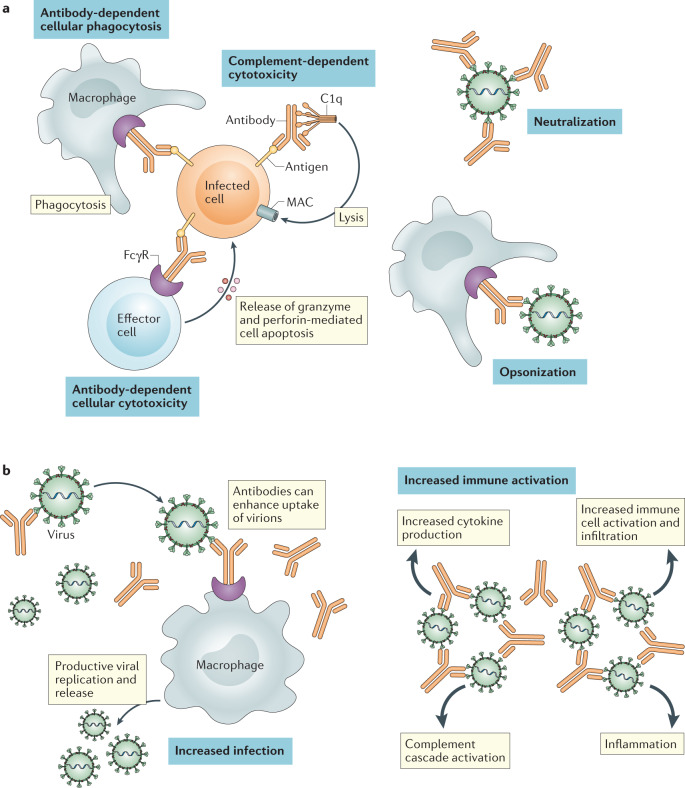Fig. 2. Mechanism of action of monoclonal antibodies for viral infection and antibody-dependent enhancement.
a | Monoclonal antibodies can directly interfere with viral pathogenesis in multiple ways. First, binding of a neutralizing antibody to the virion can prevent target cell binding and/or fusion. Furthermore, antibody binding opsonizes the virions or infected cells for phagocytic uptake. If viral proteins are intercalated into target cell membranes during viral egress, monoclonal antibodies can facilitate target cell death via complement fixation and membrane attack complex (MAC) activation or antibody-dependent cytotoxicity. These mechanisms may result in apoptosis or necrosis of the infected cell. b | In some instances, opsonization of a virion can facilitate viral pathogenesis in a process termed ‘antibody-dependent enhancement’ (ADE). ADE can occur via two distinct mechanisms. First, pathogen-specific antibodies could increase infection via viral uptake and replication in Fcγ receptor (FcγR)-expressing immune cells. Secondly, ADE can be mediated via increased immune activation by Fc-mediated effector functions or immune complex formation. The process of ADE and its potential impact during severe acute respiratory syndrome coronavirus 2 (SARS-CoV-2) infection is expertly reviewed by Lee et al.22.

